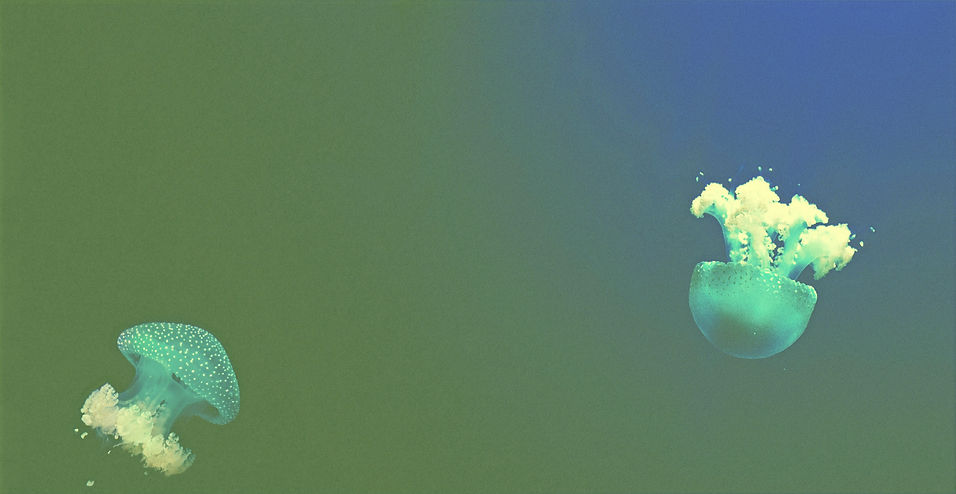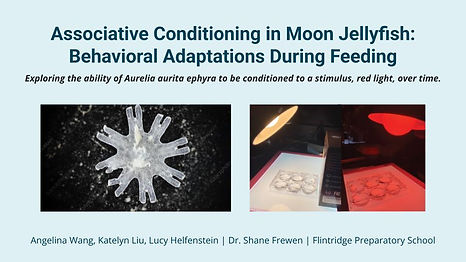top of page

JELLYFISH
Research Lab
The Jellyfish Research Lab is an immersive science experience where students work side by side to investigate jellyfish biology and climate impacts. Our work blends scientific inquiry with environmental stewardship: advancing our understanding of the ocean while inspiring the next generation of conservationists.
Abstract
Pavlov’s Dog Experiment demonstrated that dogs could learn through a “feeding training period” and associate sound with food illustrated through memory recall, but can moon jellyfish display the same behavior? Moon jellyfish, or Aurelia aurita, despite not having a brain, have a complex neural system with a large network and a small network, possibly giving them the ability to “learn” and to respond to a certain stimulus over time. There have been studies regarding conditioning in other organisms, but studies on invertebrates, specifically jellyfish, are generally limited. While box jellyfish have been found to have an aptitude to be conditioned, moon jellyfish are not as widely researched for conditioning. This project bridges that gap, investigating whether moon jellyfish can ‘learn’ through conditioning and respond to environmental stimuli in a way that parallels more cognitively complex animals. We kept jellyfish ephyra in six-well plates on shakers and shone red light before and while feeding them brine shrimp daily over 9-day periods. Throughout the trial, we observed changes in pulse rate in the presence of red light without brine shrimp. We found that jellyfish pulse rates under all tested conditions decreased over the 9-day trial, but the pulse rate of jellyfish under red light before feeding grew closer to the pulse rate of jellyfish during feeding each day, indicating that conditioning may have occurred. This may challenge our understanding of decentralized neural networks in invertebrates, and a better understanding of jellyfish behavior paves the way for ecological decisions and knowledge.
RESEARCH PROJECT SLIDES
RESEARCH PROJECT VIDEO
RESEARCH PROJECT
Poster
_pdf.png)
Awards

bottom of page
